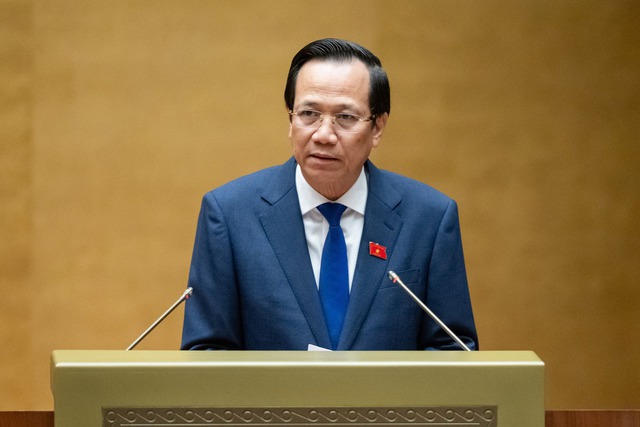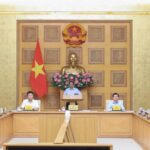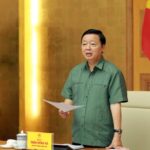
Minister of Labour, Invalids and Social Affairs Dao Ngoc Dung presents the draft Law on Employment (amended)
On the morning of November 9, continuing the program of the 8th session, the National Assembly listened to Minister of Labour, Invalids and Social Affairs Dao Ngoc Dung, on behalf of the Prime Minister, presenting the draft Law on Employment (amended).
The Law amendment aims to institutionalize the Party’s guidelines and policies; ensure the同步, consistency, and compatibility of the legal system with the management and regulation of the State; meet the socio-economic development requirements; comply with international commitments that Vietnam has joined, contributing to promoting the development of the labor market and aiming at ensuring sustainable employment for all workers.
The scope of the amended Law on Employment includes: Policies to support job creation; labor registration; the labor market information system; vocational skill development; employment services; unemployment insurance; State management on employment.
The draft law comprises four main policy groups: Flexible, effective, modern, and sustainable labor market governance, with integration;完善 unemployment insurance policies as a tool for labor market governance; vocational skill development to improve human resource quality; promoting sustainable job creation.
The bill also introduces several new provisions, such as amending the regulation on the subjects of loans for overseas work under contracts to include all workers (not limited to the five subjects as per the current law); and expanding the subjects of unemployment insurance to include workers with fixed-term labor contracts of one month or more (currently three months or more).
The draft Law also proposes to amend the unemployment insurance contribution rates as follows: A maximum of 1% of the monthly salary for employees; a maximum of 1% of the monthly salary fund of employees participating in unemployment insurance for employers; and a maximum of 1% of the monthly salary fund of employees participating in unemployment insurance, supported by the State and guaranteed by the central budget.
Notably, the law stipulates that employees who unilaterally terminate their labor contracts in violation of the law or unilaterally terminate their work contracts contrary to the provisions of the Law on Public Employees will not be eligible for unemployment benefits. Specifically, according to Article 64, the following cases shall not be entitled to unemployment benefits:
– Employees who unilaterally terminate their labor contracts in violation of the Labor Law; employees who unilaterally terminate their work contracts contrary to the provisions of the Law on Public Employees.
– Employees who are dismissed in accordance with labor laws or disciplined by dismissal in accordance with the Law on Public Employees.
– Employees receiving retirement pensions.
– Employees who meet the conditions for receiving retirement pensions but have not yet received them when their labor or work contracts are terminated.
According to the plan, the draft Law will be presented to the National Assembly for consideration and feedback during the 8th session. It will then be submitted to the National Assembly for approval at the 9th session of the XV National Assembly (June 2025). The Law will come into effect from July 1, 2026.
“Overseas Employment: Nurturing a High-Skilled Workforce”
Sending workers overseas is a strategic move to cultivate a high-quality workforce. When these workers return to the domestic labor market, they bring with them a wealth of knowledge, a strong work ethic, and a unique cultural perspective. This exchange program creates a ripple effect, infusing Vietnam’s labor market with a talented and globally-minded workforce, fostering a culture of industry and innovation, and building a bridge between Vietnam and the international community.
The Future of Work: Navigating the Labor Market in the Fourth Industrial Revolution
The Fourth Industrial Revolution has ushered in a plethora of new industries and, with it, a surge in demand for highly skilled workers to facilitate this transition. Today’s society no longer solely values academic qualifications but places a premium on vocational skills and competencies that meet the needs of these emerging industries.
“Right Person, Clear Task”: Unraveling Project and Land Issues in Inspection Conclusions and Court Judgments.
On the morning of September 16, Deputy Prime Minister Tran Hong Ha chaired a meeting of the Government’s Task Force to direct and urge the review and proposal for competent authorities to issue specific mechanisms, policies, and relevant documents to implement the Politburo’s instructions on schemes to resolve difficulties and problems related to projects and land in the inspection, examination, and judgment conclusions in several provinces and cities.



















